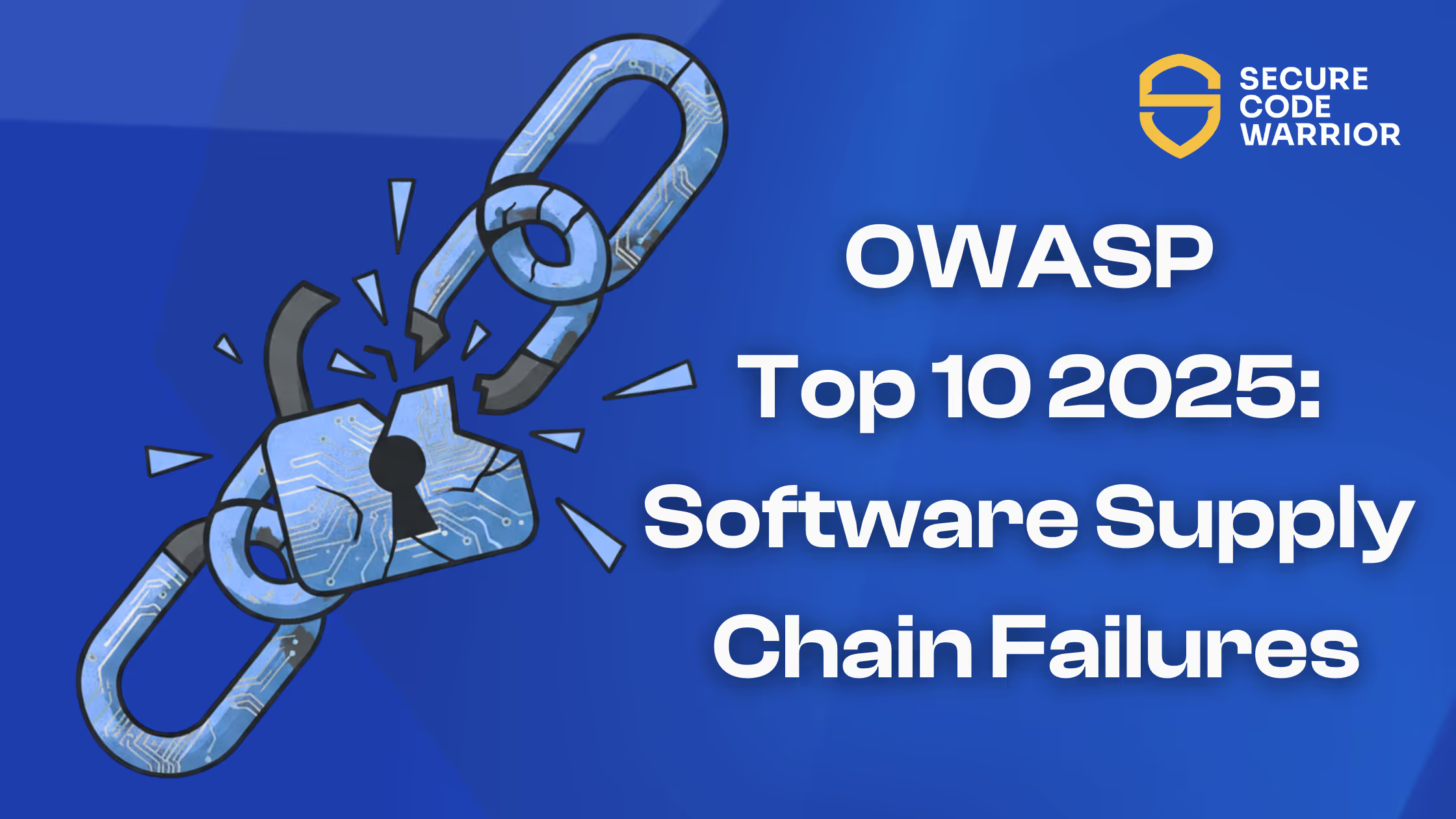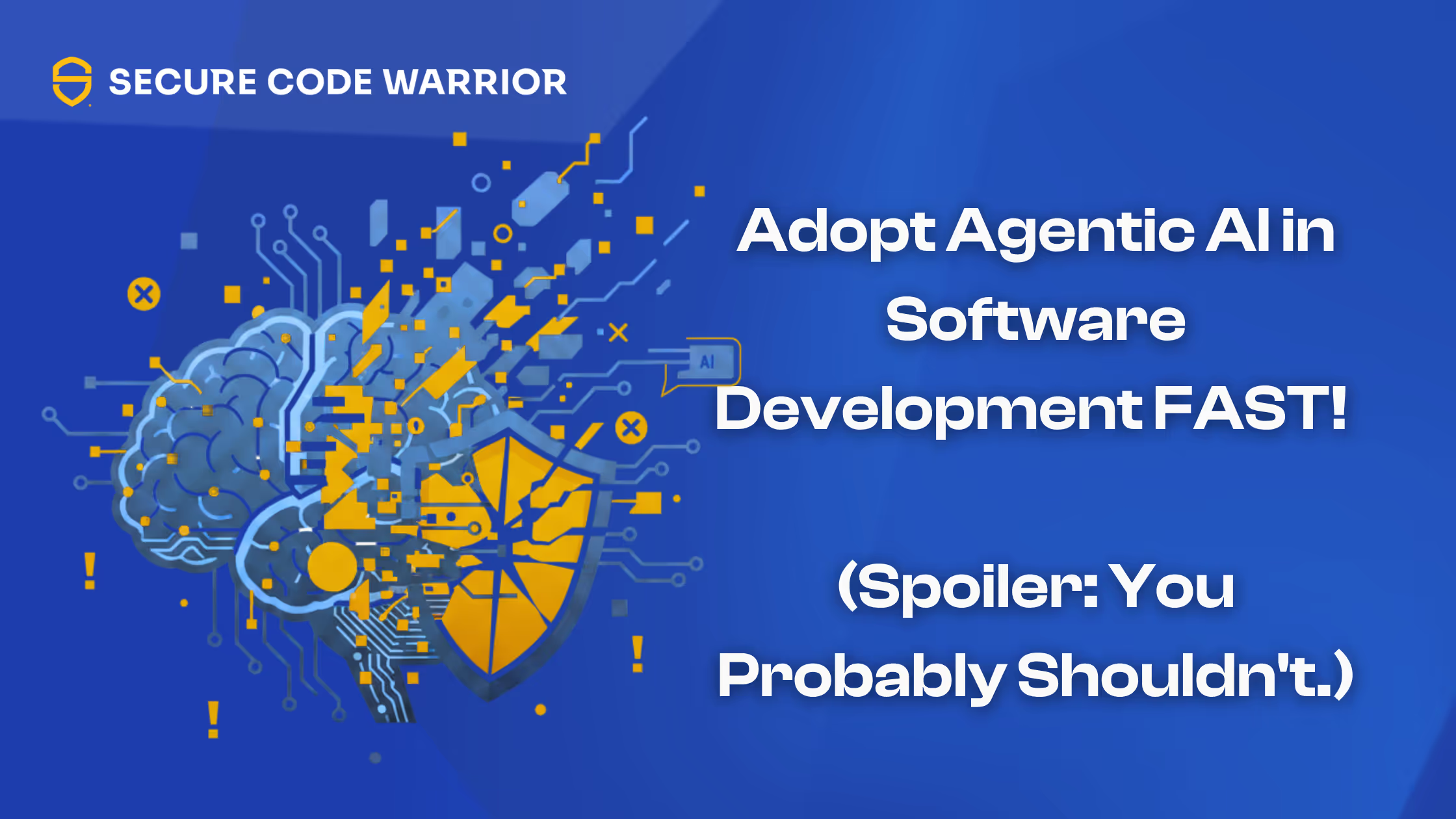
A Brighter Future For DevSecOps? It's Closer Than You Think
I was delighted to contribute with a number of experts to an insightful article by Suparna Goswami in Data Breach Today. As she points out, there's widespread agreement that addressing security early in the software development life cycle (SDLC) is essential to preventing data breaches, but it's easier said than done. There are some fantastic insights from CISOs, as well as recent survey results showing the biggest application security challenge in continuous integration/continuous delivery (CI/CD) workflows is: "lack of automated, integrated security testing tools".
In my view, DevSecOps should start when the developer starts writing the code. If DevSecOps is going to work effectively, it must begin with developers having the education, skills and tools to write code securely from the start. If developers were taught to write secure code in real-time, or better still - avoid creating many of the bugs in the first place, then security managers and testing tools could focus on finding and fixing the really challenging, complex vulnerabilities in a timely manner.
There are many solutions that find vulnerabilities in code, but security needs to place more emphasis on teaching developers to follow security guidelines that will prevent them from making these mistakes in the first place.
Developers should be assisted to write secure code and fix the vast majority of errors they make as they are writing code, and I am proud to say that the technology now exists to achieve this. Just as spelling and grammar correction tools help writers, developers can now be helped in real-time to write securely, as directed by the relevant language and security policy. In my view, this is the easier, brighter future for DevSecOps.
That's exactly what our Secure Code Warrior Sensei offers - it acts as a real-time security coach for dev teams, controlled by AppSec, ensuring security guidelines are by the developer's side at all times. It will help them code more consistently, more securely and faster. In our early adopter program, we can see it brings down the time to fix issues from an average of three hours per bug to just ten minutes.
We need to use security tools capable of working to a DevSecOps timeline, with efficiency and most importantly, accuracy. It's time to aim for a higher standard of software security.
There are many solutions that find vulnerabilities in code, but security needs to place more emphasis on teaching developers to follow security guidelines that will prevent them from making these mistakes in the first place.


There are many solutions that find vulnerabilities in code, but security needs to place more emphasis on teaching developers to follow security guidelines that will prevent them from making these mistakes in the first place.
Chief Executive Officer, Chairman, and Co-Founder

Secure Code Warrior is here for your organization to help you secure code across the entire software development lifecycle and create a culture in which cybersecurity is top of mind. Whether you’re an AppSec Manager, Developer, CISO, or anyone involved in security, we can help your organization reduce risks associated with insecure code.
Book a demoChief Executive Officer, Chairman, and Co-Founder
Pieter Danhieux is a globally recognized security expert, with over 12 years experience as a security consultant and 8 years as a Principal Instructor for SANS teaching offensive techniques on how to target and assess organizations, systems and individuals for security weaknesses. In 2016, he was recognized as one of the Coolest Tech people in Australia (Business Insider), awarded Cyber Security Professional of the Year (AISA - Australian Information Security Association) and holds GSE, CISSP, GCIH, GCFA, GSEC, GPEN, GWAPT, GCIA certifications.


I was delighted to contribute with a number of experts to an insightful article by Suparna Goswami in Data Breach Today. As she points out, there's widespread agreement that addressing security early in the software development life cycle (SDLC) is essential to preventing data breaches, but it's easier said than done. There are some fantastic insights from CISOs, as well as recent survey results showing the biggest application security challenge in continuous integration/continuous delivery (CI/CD) workflows is: "lack of automated, integrated security testing tools".
In my view, DevSecOps should start when the developer starts writing the code. If DevSecOps is going to work effectively, it must begin with developers having the education, skills and tools to write code securely from the start. If developers were taught to write secure code in real-time, or better still - avoid creating many of the bugs in the first place, then security managers and testing tools could focus on finding and fixing the really challenging, complex vulnerabilities in a timely manner.
There are many solutions that find vulnerabilities in code, but security needs to place more emphasis on teaching developers to follow security guidelines that will prevent them from making these mistakes in the first place.
Developers should be assisted to write secure code and fix the vast majority of errors they make as they are writing code, and I am proud to say that the technology now exists to achieve this. Just as spelling and grammar correction tools help writers, developers can now be helped in real-time to write securely, as directed by the relevant language and security policy. In my view, this is the easier, brighter future for DevSecOps.
That's exactly what our Secure Code Warrior Sensei offers - it acts as a real-time security coach for dev teams, controlled by AppSec, ensuring security guidelines are by the developer's side at all times. It will help them code more consistently, more securely and faster. In our early adopter program, we can see it brings down the time to fix issues from an average of three hours per bug to just ten minutes.
We need to use security tools capable of working to a DevSecOps timeline, with efficiency and most importantly, accuracy. It's time to aim for a higher standard of software security.
There are many solutions that find vulnerabilities in code, but security needs to place more emphasis on teaching developers to follow security guidelines that will prevent them from making these mistakes in the first place.

I was delighted to contribute with a number of experts to an insightful article by Suparna Goswami in Data Breach Today. As she points out, there's widespread agreement that addressing security early in the software development life cycle (SDLC) is essential to preventing data breaches, but it's easier said than done. There are some fantastic insights from CISOs, as well as recent survey results showing the biggest application security challenge in continuous integration/continuous delivery (CI/CD) workflows is: "lack of automated, integrated security testing tools".
In my view, DevSecOps should start when the developer starts writing the code. If DevSecOps is going to work effectively, it must begin with developers having the education, skills and tools to write code securely from the start. If developers were taught to write secure code in real-time, or better still - avoid creating many of the bugs in the first place, then security managers and testing tools could focus on finding and fixing the really challenging, complex vulnerabilities in a timely manner.
There are many solutions that find vulnerabilities in code, but security needs to place more emphasis on teaching developers to follow security guidelines that will prevent them from making these mistakes in the first place.
Developers should be assisted to write secure code and fix the vast majority of errors they make as they are writing code, and I am proud to say that the technology now exists to achieve this. Just as spelling and grammar correction tools help writers, developers can now be helped in real-time to write securely, as directed by the relevant language and security policy. In my view, this is the easier, brighter future for DevSecOps.
That's exactly what our Secure Code Warrior Sensei offers - it acts as a real-time security coach for dev teams, controlled by AppSec, ensuring security guidelines are by the developer's side at all times. It will help them code more consistently, more securely and faster. In our early adopter program, we can see it brings down the time to fix issues from an average of three hours per bug to just ten minutes.
We need to use security tools capable of working to a DevSecOps timeline, with efficiency and most importantly, accuracy. It's time to aim for a higher standard of software security.
There are many solutions that find vulnerabilities in code, but security needs to place more emphasis on teaching developers to follow security guidelines that will prevent them from making these mistakes in the first place.

Click on the link below and download the PDF of this resource.
Secure Code Warrior is here for your organization to help you secure code across the entire software development lifecycle and create a culture in which cybersecurity is top of mind. Whether you’re an AppSec Manager, Developer, CISO, or anyone involved in security, we can help your organization reduce risks associated with insecure code.
View reportBook a demoChief Executive Officer, Chairman, and Co-Founder
Pieter Danhieux is a globally recognized security expert, with over 12 years experience as a security consultant and 8 years as a Principal Instructor for SANS teaching offensive techniques on how to target and assess organizations, systems and individuals for security weaknesses. In 2016, he was recognized as one of the Coolest Tech people in Australia (Business Insider), awarded Cyber Security Professional of the Year (AISA - Australian Information Security Association) and holds GSE, CISSP, GCIH, GCFA, GSEC, GPEN, GWAPT, GCIA certifications.
I was delighted to contribute with a number of experts to an insightful article by Suparna Goswami in Data Breach Today. As she points out, there's widespread agreement that addressing security early in the software development life cycle (SDLC) is essential to preventing data breaches, but it's easier said than done. There are some fantastic insights from CISOs, as well as recent survey results showing the biggest application security challenge in continuous integration/continuous delivery (CI/CD) workflows is: "lack of automated, integrated security testing tools".
In my view, DevSecOps should start when the developer starts writing the code. If DevSecOps is going to work effectively, it must begin with developers having the education, skills and tools to write code securely from the start. If developers were taught to write secure code in real-time, or better still - avoid creating many of the bugs in the first place, then security managers and testing tools could focus on finding and fixing the really challenging, complex vulnerabilities in a timely manner.
There are many solutions that find vulnerabilities in code, but security needs to place more emphasis on teaching developers to follow security guidelines that will prevent them from making these mistakes in the first place.
Developers should be assisted to write secure code and fix the vast majority of errors they make as they are writing code, and I am proud to say that the technology now exists to achieve this. Just as spelling and grammar correction tools help writers, developers can now be helped in real-time to write securely, as directed by the relevant language and security policy. In my view, this is the easier, brighter future for DevSecOps.
That's exactly what our Secure Code Warrior Sensei offers - it acts as a real-time security coach for dev teams, controlled by AppSec, ensuring security guidelines are by the developer's side at all times. It will help them code more consistently, more securely and faster. In our early adopter program, we can see it brings down the time to fix issues from an average of three hours per bug to just ten minutes.
We need to use security tools capable of working to a DevSecOps timeline, with efficiency and most importantly, accuracy. It's time to aim for a higher standard of software security.
There are many solutions that find vulnerabilities in code, but security needs to place more emphasis on teaching developers to follow security guidelines that will prevent them from making these mistakes in the first place.
Table of contents
Chief Executive Officer, Chairman, and Co-Founder

Secure Code Warrior is here for your organization to help you secure code across the entire software development lifecycle and create a culture in which cybersecurity is top of mind. Whether you’re an AppSec Manager, Developer, CISO, or anyone involved in security, we can help your organization reduce risks associated with insecure code.
Book a demoDownloadResources to get you started
Threat Modeling with AI: Turning Every Developer into a Threat Modeler
Walk away better equipped to help developers combine threat modeling ideas and techniques with the AI tools they're already using to strengthen security, improve collaboration, and build more resilient software from the start.










%20(1).avif)
.avif)


.avif)



